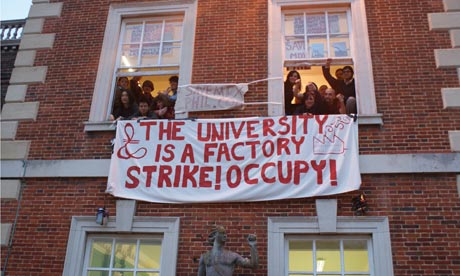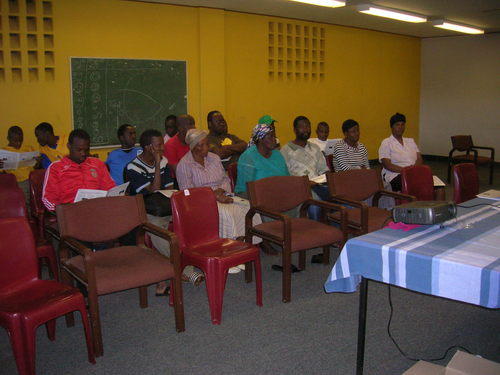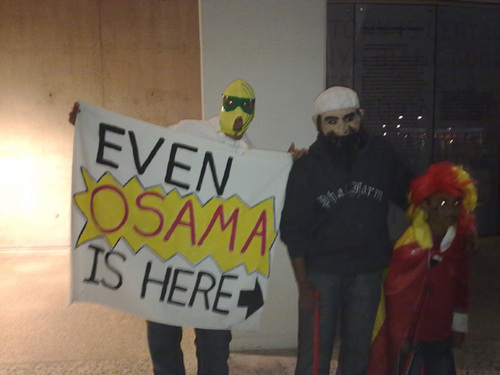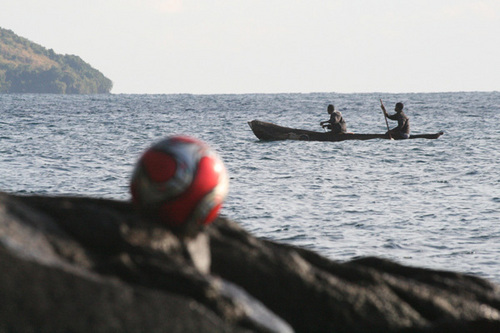Should scholars and scientists concentrate on being useful, or should they be guided primarily by curiosity? This stark choice — between usefulness and curiosity — has been mobilised implicitly by the Higher Education Funding Council for England (HEFCE) in recent … Continue reading “The Curious and the Useful”
Category:
'Creative' Functionalism and Continental Philosophy at Middlesex
paula gilliganOn May 10, 2010, the management of Middlesex University in England shut down its Philosophy Department. This act provoked a spate of letters in the newspapers. Now, while the general attack on the Humanities in the United Kingdom has been going … Continue reading “'Creative' Functionalism and Continental Philosophy at Middlesex”
Deepwater Impact
stephen shapiroThe simple fact that we are discussing “impact” proposals on the humanities and social sciences indicates a depressing failure of “impact” itself. Long after the contemporary academy has become bored with Foucauldian critiques of social control through assessment and quantitative … Continue reading “Deepwater Impact”
Academic Free Fall
neil smithWhen I left Britain in the 1970s to pursue a doctorate in the US, it was an item of faith that US universities were far more corporatized than their UK counterparts, in the social sciences as well as the natural … Continue reading “Academic Free Fall”
Researching the Global South in an Age of Impact
paula methPaula’s Story: In October 2009 I ran (with the help of local researchers) a dissemination workshop in the basement of a community library in the informal settlement of Cato Crest, Durban, South Africa. I was feeding back to project participants, … Continue reading “Researching the Global South in an Age of Impact”
The Impact Effect
rick rylanceRecently RCUK, the umbrella body for the seven UK research councils, had a discussion about the language of impact. As many will know, all councils require statements about impact on grant applications. We discussed whether these should be called ‘plans’ … Continue reading “The Impact Effect ”
Featured on NPR: The Citizen Machine
Social Text CollectiveSocial Text Collective member Anna McCarthy was a guest on WNYC’s Leonard Lopate Show to discuss her recent book The Citizen Machine: Governing by Television in 1950’s America.
The interview aired on the August 3rd broadcast but can be listened to in its entirety by clicking the link above.
Interview: Richard Ledes on Haiti and Horror Movies
Kristina HuangIntroduction: Richard Ledes is an award-winning New York City-based filmmaker. His films include A Hole in One (2004) and The Caller (2008), which won Tribeca Film Festival’s Made in New York award. His current project, Foreclosure, is a … Continue reading “Interview: Richard Ledes on Haiti and Horror Movies”
"Will I Die Before They Get To Know Me?"
Michael Ralph“Will I Die Before They Get To Know Me?” From J. Cole to Oscar Grant III “Will I live or will I die before they get to know me? If I go, I know the ones that’s pourin’ liquor for … Continue reading “"Will I Die Before They Get To Know Me?"”
The Decision
Khalilah Brown-DeanAs a scholar who is deeply intrigued by both the ingredients and political consequences of public opinion, I often gauge public sentiment by simply reading the status messages and posts of my friends on Facebook and Twitter. These social media … Continue reading “The Decision”
Old Wounds and New Pain
Khalil Gibran MuhammadThe past can be like an old wound that never heals, especially when the scab keeps being picked. In the wake of Oakland transit cop Johannes Mesherle’s recent involuntary manslaughter conviction for the on-duty shooting death of unarmed, 22-year-old Oscar … Continue reading “Old Wounds and New Pain”
Justice for Oscar Grant
R. LHeureux Lewis“Justice for Oscar Grant!” As I sit in front of these keys I know that I could have written this essay 100 times before and will likely need to write it 100 more times before I die, simply because I … Continue reading “Justice for Oscar Grant”
New from a Social Text Author: The Citizen Machine
Social Text CollectiveThe Citizen Machine: Governing by Television in 1950s America
by Anna McCarthy
Formed in the shadow of the early Cold War, amid the first stirrings of the civil rights movement, the idea of television as a form of unofficial government inspired corporate executives, foundation officers, and other members of the governing classes to imagine TV sponsorship as a powerful new form of influence on American democracy in the postwar years. The Citizen Machine tells the story of their efforts to shape U.S. political culture, uncovering a dense web of fantasies and rationalizations about race, class, and economic power that have profoundly shaped not only television, but our understanding of American citizenship itself.
World Cup 2010
Nikhil Pal SinghIn this dossier, a series of football enthusiasts (who also happen to be social and cultural critics), offer their reflections upon the meaning and significance of the 2010 World Cup in South Africa. Much commentary and controversy has already … Continue reading “World Cup 2010”
The World Cup in Pictures
Tavia Nyong'oSoweto, South Africa – Fans on a train in Soccer City. Korogwe, Tanzania – Watching the Game. Maputo, Mozambique – City Streets. Lusaka, Zambia – Street Dancer. Johannesburg, South Africa – Standton City Mall Marionettes Quissico, Mozambique – Footballers and … Continue reading “The World Cup in Pictures”







